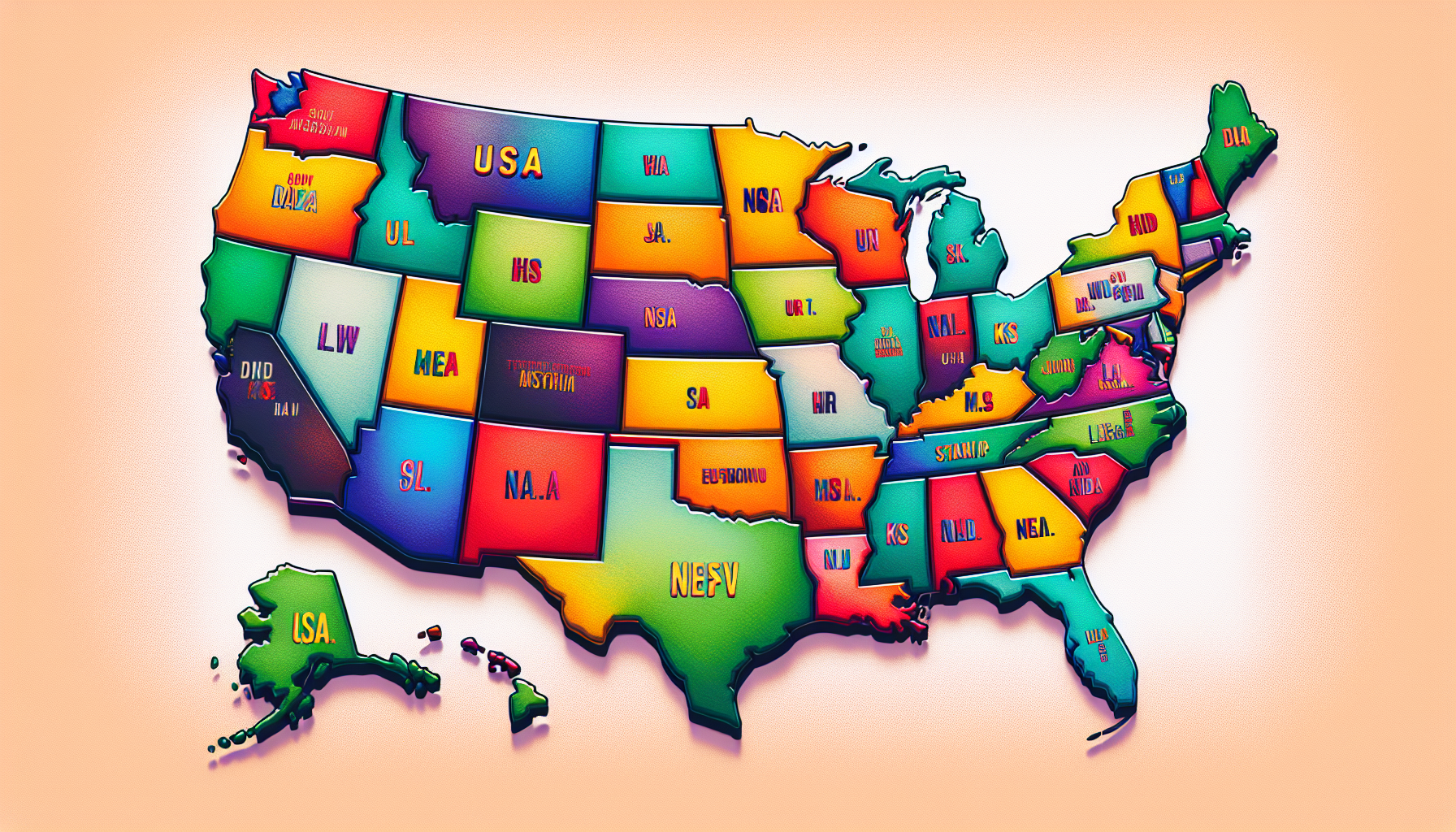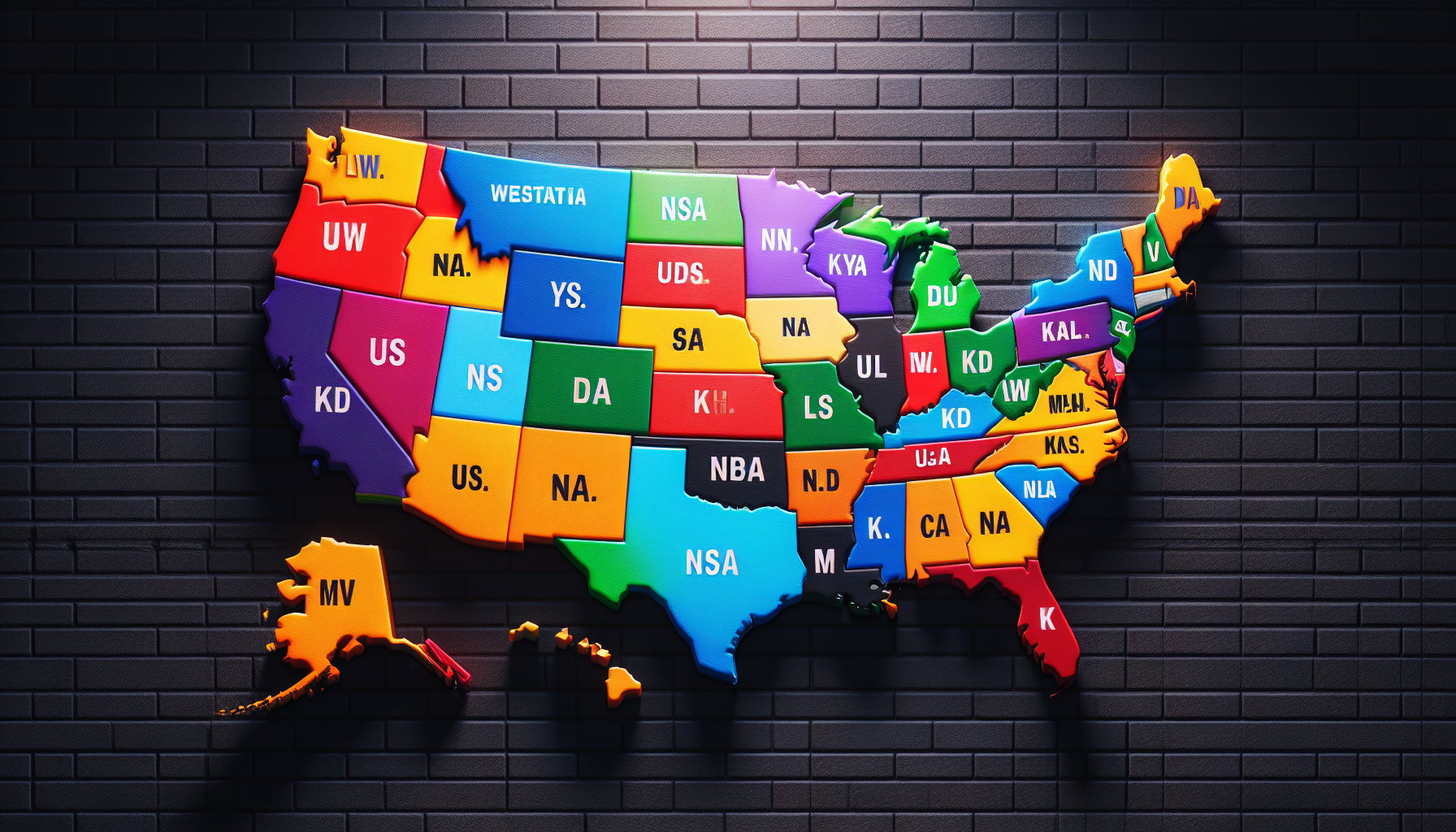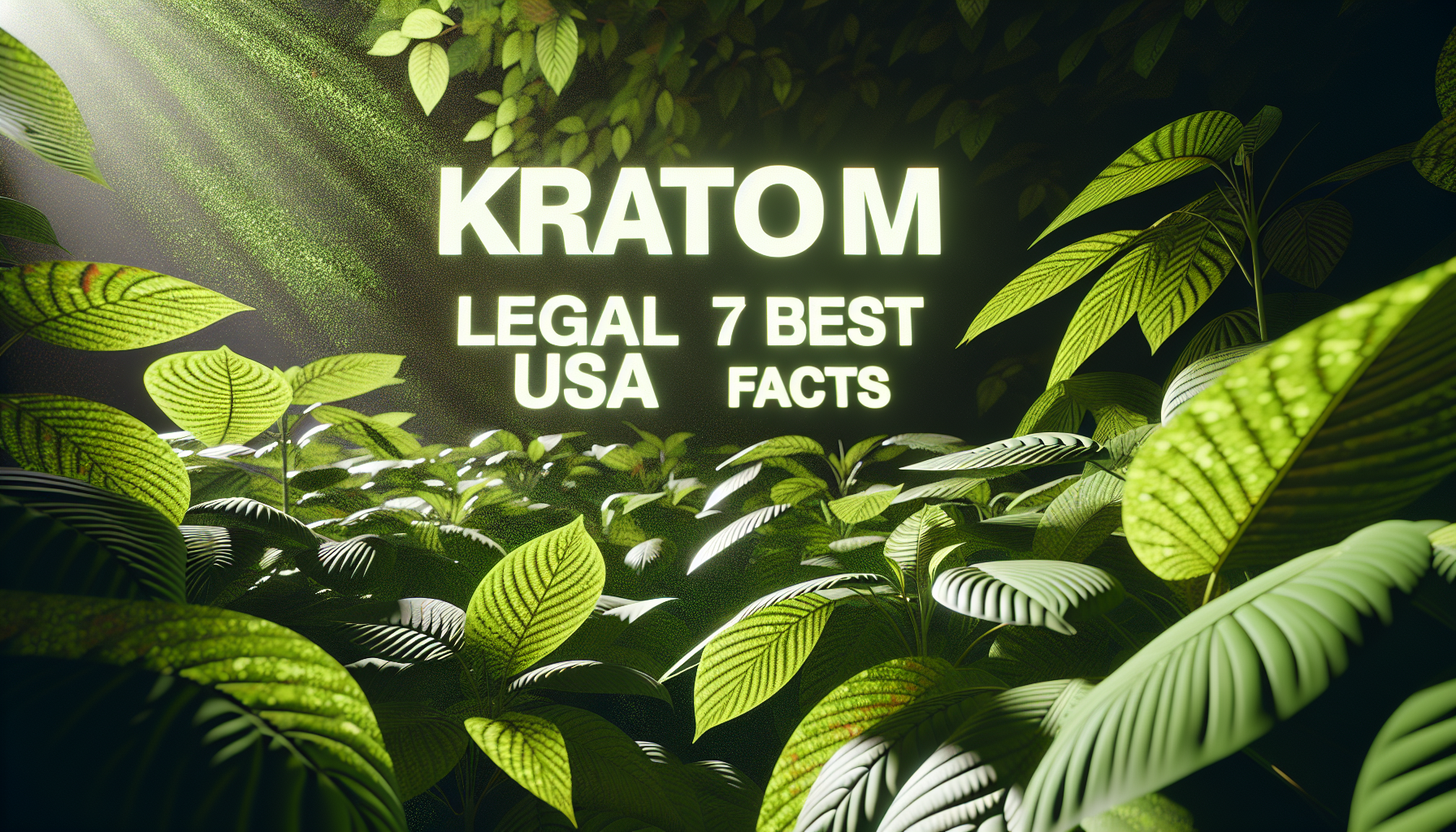Deprecated: mb_convert_encoding(): Handling HTML entities via mbstring is deprecated; use htmlspecialchars, htmlentities, or mb_encode_numericentity/mb_decode_numericentity instead in /home/users/kratomfiles/www/kratomfiles.com/wp-content/plugins/quick-adsense-reloaded/includes/template-functions.php on line 3552

Kratom, a plant with origins in Southeast Asia, is increasingly sought after in the United States for its potential health benefits. It has sparked interest for its alleged ability to alleviate pain, anxiety, and symptoms of opioid withdrawal.
In the landscape of current regulations surrounding this botanical product, the legal status of kratom in the USA remains a topic of ongoing debate and scrutiny.
While most states allow the sale and use of kratom with certain restrictions, questions persist regarding its safety and necessary regulatory measures.
For consumers interested in exploring the world of kratom, understanding the complex web of laws and guidelines is paramount for responsible use and compliance.
Understanding the Legal Status of Kratom in the USA
Kratom, a plant-derived substance that has sparked controversy in the United States, has become a subject of intense scrutiny regarding its legal status. The FDA has expressed concerns about the safety of this botanical product, leading to efforts by advocacy groups such as the American Kratom Association to promote its regulation and legality.
Despite these efforts, federal and state authorities, including the DEA, have implemented bans on kratom in certain regions.
To fully grasp the current legal landscape surrounding kratom in the USA, one must delve into the intricate web of federal regulations, state laws, and ongoing debates surrounding its use.

Is Kratom Legal in Your State?
Navigating the legal landscape surrounding the use of kratom can be a complex and daunting task. Various states have implemented their own regulations regarding the sale and purchase of this herbal supplement, while at the federal level, kratom is classified as a Schedule I substance.
Despite these restrictions, individuals may find ways to obtain kratom through loopholes in the law, but this can come with legal risks.
Understanding the current legal status of kratom in your state is crucial before considering its use, as it can impact your ability to access and use the product.
To stay compliant with local laws, it is important to stay informed about the ever-changing regulations surrounding kratom.
Kratom Legal Landscape
- Various states have different regulations on kratom sale and purchase
- Kratom is classified as a Schedule I substance at the federal level
- Individuals may find ways to obtain kratom through loopholes in the law
- Understanding the legal status of kratom in your state is crucial before use
The Importance of Staying Informed about Kratom Laws
Introduction
Ensuring awareness of the legal status of kratom in the United States is essential for users to avoid potential legal consequences. It is crucial for individuals to stay informed about kratom laws to make well-informed decisions regarding their kratom use and purchase.
How Kratom Laws Impact Consumers
Consumers must understand the risks associated with using kratom in prohibited states and the dangers of purchasing kratom from unregulated sources.
The regulation of kratom is crucial to guarantee the safety of kratom products and shield consumers from harm.
Current Legal Landscape
Various states have different laws regarding kratom, emphasizing the importance for users to stay updated on local regulations. While kratom remains legal in some states, there are ongoing debates regarding the regulation of kratom and concerns about the safety of kratom products.
Advocating for Consumer Protection in the Kratom Industry
Advocates for the well-being of consumers in the kratom industry have been vocal about the need for stricter regulations to safeguard against potential risks associated with the sale of kratom products. The current lack of consistent laws governing the purchase of kratom online has created challenges for buyers, making it increasingly difficult to guarantee the quality and safety of the products they are obtaining.
Various states have responded to these concerns by either classifying kratom as a controlled substance or enforcing bans on its sales, but more comprehensive actions, such as the implementation of the kratom consumer protection act, are essential to protect the interests of kratom consumers.
To navigate this complex landscape, it is crucial for individuals to keep themselves updated on the legal status of kratom in their area and be well-informed about the local laws and regulations pertaining to kratom consumption.
Kratom Regulation
- Stricter regulations are needed to protect consumers from potential risks associated with kratom products
- The lack of consistent laws for purchasing kratom online has made it challenging for buyers to ensure product quality and safety
- Some states have classified kratom as a controlled substance or banned its sales in response to safety concerns
- The implementation of the kratom consumer protection act is crucial to safeguard the interests of kratom consumers
Exploring the Federal and State Regulations of Kratom
As the popularity of kratom continues to rise, it is essential for individuals and businesses to stay informed about the legal status of this botanical substance in their state. With six states where kratom is prohibited, understanding the regulatory landscape surrounding kratom is crucial to ensure compliance with the complex laws governing its use.
Although kratom is not classified as a controlled substance under federal law, the legality of kratom varies widely across different states.
Factors such as concerns about its safety and potential for abuse play a significant role in shaping legislation on kratom.
To navigate the ever-changing regulations surrounding kratom, individuals and businesses must remain vigilant in staying updated on any proposed bills to ban kratom.
It is also important to be aware of the risks associated with kratom use, especially in states where kratom is currently banned.
Ensuring Safety and Quality in Kratom Products
Ensuring the safety and quality of kratom products is crucial for individuals seeking to benefit from this natural substance. It is vital to consider various factors, such as sourcing from reputable vendors, checking for third-party lab testing results, and understanding the diverse strains and their effects.
Proper dosing guidelines and staying informed about the legal status of kratom are also essential.
Consulting healthcare professionals for guidance on medicinal use is recommended to ensure safe consumption.
Studies have shown that kratom can have various effects on the body, and it is important to keep up with the current legal status of kratom in your state to comply with regulations. Remember, federal and state laws may prohibit the sale of kratom in certain areas, so it is crucial to stay informed and keep it legal.
Kratom Safety and Quality
- Sourcing from reputable vendors ensures the quality and safety of kratom products
- Third-party lab testing results provide transparency and assurance of product quality
- Understanding the diverse strains and their effects helps in choosing the right kratom product for individual needs
- Consulting healthcare professionals for guidance on medicinal use ensures safe consumption and proper dosing
Debunking Myths and Misconceptions Surrounding Kratom
In the realm of botanicals, there exists a myriad of myths and misunderstandings that often cloud the true essence of certain plants. It is imperative to delve deeper into the world of these natural wonders in order to uncover the reality behind the misconceptions.
One key aspect to consider is the significance of advocating for a better understanding of the benefits that these botanicals, such as kratom, can offer.
Supporting the Advocacy Efforts of the American Kratom Association
Exploring the Advocacy Efforts of the American Kratom Association. Despite the growing popularity of kratom, it still faces potential legal threats that could impact its availability.
Understanding the current landscape of kratom legality in the US is crucial for advocating for its continued access.
The American Kratom Association tirelessly works to protect kratom from being classified as a Schedule I substance, which would severely restrict its availability.
Demonstrating the significance of community support in lobbying efforts is essential for safeguarding kratom for those who benefit from its use.
| Kratom Advocacy Efforts | Impact on Availability |
|---|---|
| American Kratom Association | Protects kratom from Schedule I classification |
| Legal Threats | Potential restrictions on availability |
| Community Support | Essential for lobbying efforts |


